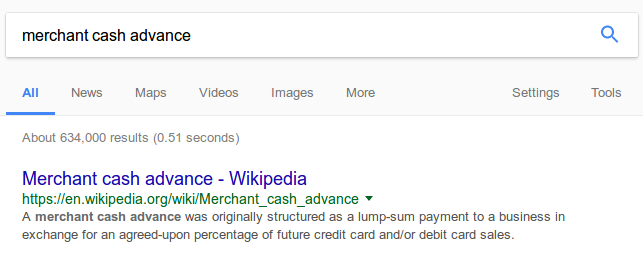seo
Controversial Search Engine Marketing Tactic Targeted by Google
March 24, 2024 When company domain names expire, some investors snatch them up to take advantage of the residual benefits left behind. That is that if the company had a significant footprint in search engines before going out of business then it can pay big money to bring that domain name back to life and monetize its organic search traffic.
When company domain names expire, some investors snatch them up to take advantage of the residual benefits left behind. That is that if the company had a significant footprint in search engines before going out of business then it can pay big money to bring that domain name back to life and monetize its organic search traffic.
But Google hasn’t become too fond of this strategy since it’s apparently often used in a deceptive manner.
“Expired domain abuse is where an expired domain name is purchased and repurposed primarily to manipulate search rankings by hosting content that provides little to no value to users,” wrote Google as part of its new policy. “Expired domain abuse isn’t something people accidentally do. It’s a practice employed by people who hope to rank well in Search with low-value content by using the past reputation of a domain name. These domains are generally not intended for visitors to find them in any other way but through search engines. It’s fine to use an old domain name for a new, original site that’s designed to serve people first.”
Google also made changes to its core algorithm that is reducing “unhelpful, low-quality, unoriginal content in its search results by 40%.”
Once upon a time Google organic search traffic could be make or break for a company but today there are so many platforms that people are using (Think the Amazon Echo, ChatGPT, TikTok, and more) that it is merely one channel out of many on the internet to acquire customers.
Are Google’s Search Results Getting Worse? Maybe
October 3, 2023 Ever find yourself perplexed by a string of bad Google search results? It might be by design. As a federal antitrust lawsuit against Google heads to trial, prosecutors have filed dozens of exhibits that include eyebrow-raising internal communications about how Search works. Apparently, it’s not all algorithms and data science running the show, but a team of salespeople trying to hit their numbers.
Ever find yourself perplexed by a string of bad Google search results? It might be by design. As a federal antitrust lawsuit against Google heads to trial, prosecutors have filed dozens of exhibits that include eyebrow-raising internal communications about how Search works. Apparently, it’s not all algorithms and data science running the show, but a team of salespeople trying to hit their numbers.
For example, in late 2018 Google rolled out an update that allegedly improved the user search experience while at the same time inadvertently decreasing the number of search queries and ad revenue. What to do? An Ads team exec floated the possibility of rolling back the update and a discussion was had to make Search worse for users just to boost queries and ad clicks.
“The question we are all faced with is how badly do we want to hit our numbers this quarter?” the ad exec said. “We need to make this choice ASAP. I care more about revenue than the average person but think we can all agree that for all of our teams trying to live in high cost areas another $_redacted_ in stock price loss will not be great for morale, not to mention the huge impact on our sales team.”
Though these communications do not conclusively establish anything in terms of how Google ran its business, it’s impossible to avoid wondering if a string of bad results might have less to do with whether or not Google’s algorithm is working and more to do with whether or not a Google sales guy is trying to hit a search query quota so that he can pay his mortgage this month.
 On the flip side, bad results might have nothing to do with ad sales at all, but are rather a consequence of the proliferation of bad websites with misaligned incentives. Google’s 20th employee, Marissa Mayer, who also served as CEO of Yahoo for five years, explained in a podcast last year, for example, that websites themselves are what’s getting worse.
On the flip side, bad results might have nothing to do with ad sales at all, but are rather a consequence of the proliferation of bad websites with misaligned incentives. Google’s 20th employee, Marissa Mayer, who also served as CEO of Yahoo for five years, explained in a podcast last year, for example, that websites themselves are what’s getting worse.
“I think because there’s a lot of economic incentive for misinformation, for clicks, for purchases,” she said. “There’s a lot more fraud on the web today than there was 20 years ago.”
Still, in the Google communications referenced above, it was obvious that Google was faced with balancing user experience with revenue expectations.
“All these little things ultimately add up to retaining Chrome users – if we lose them, we will see far greater [Sales Quantity Variance] loss, and I won’t have any way to get them back,” wrote a Google manager to the Ad team exec.
One’s search experience will surely be impacted even more now as Google is forced to contend with AI personal assistants, a Q&A experience unlike anything that’s ever been seen on the web before. All of which means Google might have to get better at answering your questions if it wants to stay competitive, but not be so good that it hurts morale for the sales team.
Google Files Lawsuit Over Fake Business Profiles and Fake Reviews
June 21, 2023 Agroup of defendants with an alleged common owner have brought a whole new meaning to Search Engine Optimization. According to a lawsuit filed by Google, one Ethan Qiqi Hu set up more than 350 fraudulent business profiles and bolstered them with more than 14,000 fake reviews. Although this case has no tie to the financial services industry, it may be worth knowing how the scheme was carried out.
Agroup of defendants with an alleged common owner have brought a whole new meaning to Search Engine Optimization. According to a lawsuit filed by Google, one Ethan Qiqi Hu set up more than 350 fraudulent business profiles and bolstered them with more than 14,000 fake reviews. Although this case has no tie to the financial services industry, it may be worth knowing how the scheme was carried out.
Defendants did not limit themselves to a niche. According to the complaint, they pretended to be repair shops, chiropractors, cleaning services, spas, painters, and more. They got around the verification step by skipping the mailed postcard and consenting to video chat inspections, in which defendants relied on movie-like sets and props to convince Google’s staff they were at whatever business in question. Once established, its alleged they relied on thousands of fake reviews from Bangladesh and Vietnam and then used the business profiles to either generate and sell leads or to sell the profiles themselves for a profit. Google said that the scheme undermines people’s faith in their products.
“In 2022, we protected more than 185,000 businesses from further abuse after detecting suspicious activity and abuse attempts,” Google said. “We also stopped 20 million attempts to create fake Business Profiles in 2022, and continue to invest in new technologies and processes to keep information on our products helpful and reliable.”
Google said that they took this legal action “against a bad actor for deceiving and scamming consumers.” It added that it hopes the lawsuit “builds awareness that we will not sit idly by as bad actors misuse our products.”
There’s a message here that one can’t rely on Google business profiles alone to authenticate legitimacy (looking at you underwriting) just as one may not be able to rely heavily on Google Maps.
Dependent on “Search” for Lead Flow? AI Might Replace the Links and Become a Personal Concierge
May 30, 2023 Even if an entire generation is unimpressed with ChatGPT or newfangled AI technologies, the pre-existing Q&A experience as we know it on web search might change regardless. Google, for example, is currently experimenting with “generative-AI” responses for its search bar.
Even if an entire generation is unimpressed with ChatGPT or newfangled AI technologies, the pre-existing Q&A experience as we know it on web search might change regardless. Google, for example, is currently experimenting with “generative-AI” responses for its search bar.
While Google emphasizes that it is experimental and available only to a select group of people, the technology is being marketed as a way for users to find what they’re looking for in faster, easier ways. And it’s not just about “chatting.” According to one user testing the technology, the search query for “buy surfboard online” resulted in Google’s AI offering tips on the fly about what to consider when making a purchase. Below all the advice are the links to buy surfboards. The difference is that AI has now intervened in the customer’s journey and told them what to be looking for.
This sort of shopping experience was recently pondered in a deBanked blog post about small business lending in which an AI did more than just provide a list of names to respond to a query, it also answered personalized questions that guided a user toward a decision, leaving the potential sources vying for that customer out of the conversation.
Indeed, Google emphasizes that its generative-AI search is built for follow-up questions that will enable users to “dive deeper on a topic in a conversational way.”
Should the structure go from experimental to the default search experience, the implication is that AI would be driving the customer decision, whereas currently Google limits itself to offering a list of links in an order that’s roughly based on who paid the most. From here, customers are left to their own devices to acquire the knowledge they need to make a decision. That would end in an AI-oriented experience.
You can learn more about Google’s generative AI search here.
Lawsuit Alleging Google Ad Abuse is Latest Iteration of the Search War
May 20, 2021 Google parent company Alphabet reported a record profit in Q1 2021 of $18 billion, up 162% from 2020. The firm attributes the success to a 32% surge in Covid related advertising sales.
Google parent company Alphabet reported a record profit in Q1 2021 of $18 billion, up 162% from 2020. The firm attributes the success to a 32% surge in Covid related advertising sales.
A recent lawsuit from ten US States filed in a district court in Texas would argue that it’s not just a covid based bump in ad sales. According to the WSJ, in response to the lawsuit, Google accidentally confirmed what prosecutors suspected: they run a secret program called “Project Bernanke” that uses proprietary data to win bids on the firm’s ad exchange, netting hundreds of millions of dollars over the years. It amounts to a digital ad monopoly, which has already pushed Google’s parent company, Alphabet, to new highs.
Google’s ad exchange works like a stock exchange for marketing, as enterprises buy and sell placements and seconds of attention within the Google advertising universe. Firms bid on purchasing slots for ads in browsers and videos, and the auctions happen lightning fast in real-time. The lawsuit from ten states through the Taxes district court alleges Google used insider information on what they knew firms were willing to pay, to drive the prices as high as they would go.
Google is both on the buy and sell-side of its transactions and admitted in the papers WSJ saw that the data they mined to inform bids in Project Bernanke was not disclosed to publishers. The papers were quickly redacted and sealed by a judge days after WSJ found the details. The documents also mention “Jedi Blue,” a sweetheart deal between Google and Facebook. Instead of competing with Google ads, Facebook agreed to bid on and automatically win a fixed percentage of Google ad auctions. The deal originated back in 2018 when Facebook announced it was joining a competitor advertising program called “open bidding.” The states’ lawsuit alleges the firms must have made a side deal then, and the leaders of the internet ad market colluded; it’s why a bipartisan coalition of ten states is pushing back.
deBanked has tracked Google’s relationship with funders who use the search engine for marketing their products. After reducing the effetiveness of SEO and forcing most businesses into buying ad space out of necessity, the new lawsuit alleges Google rigged the game for themselves. The House always wins.
Back in 2012, deBanked’s Sean Murray first evaluated the SEO landscape. Google punished blogs that were printing out backlinks by the hundreds, nose-diving the competitive market for SEO rankings.
In 2014, Google’s “penguin algorithm” inflicted further pain.
In 2017, Google outright blocked merchant cash advance as an advertising keyword.
“You Can’t Stay Static”: Paul Teitelman and the Building of an SEO Firm
June 30, 2019
 How does someone become an SEO expert? How does someone found a successful SEO consultancy firm? For Paul Teitelman, his road to SEO mastery and independence started by admitting he knew nothing about the industry.
How does someone become an SEO expert? How does someone found a successful SEO consultancy firm? For Paul Teitelman, his road to SEO mastery and independence started by admitting he knew nothing about the industry.
Beginning in the late noughties, following his graduation in Marketing Management from Dalhousie University, Teitelman went to an Interactive Advertising Bureau job fair, pitched himself to his soon-to-be boss, and replied, “No! But I’m your man. I’ll learn it all,” when asked if he knew anything about SEO.
Thus began his tenure at Search Engine People, one of Canada’s first Search Engine Marketing companies. Here he entered as a Link Ninja and learned the trade by implementing SEO campaigns for both Fortune 100 and 500 companies as well as for local businesses. From this, he advanced to a managerial position, in which he led teams of SEO specialists who were responsible for ensuring clients would appear at the top of Google search pages. And then, in 2011, Teitelman left Search Engine People to make his own way, becoming the CEO and founder of his self-titled, Toronto-based SEO consultancy firm.
How did the move to independence pan out? Well, as of June 2019 he has hired his 25th employee, his team is kept busy servicing the needs of clients, and he experiments with pioneering SEO strategies and theories within his own blog network. Claiming that his firm offers “the best of both worlds” as a result of him having worked on both ends of the SEO spectrum, Teitelman explains that clients benefit from his offering of the transparency, promptness, and directness that are inherent with small firms; and that he reaps the reward of an agency price tag, a perk that comes with producing consistently successful SEO work.
 When asked about how others could follow in his footsteps, he said, regardless of the industry, whether you’re an SEO expert or broker, that “you can’t stay static.” Emphasizing the necessity of having foresight when you leave your old job, Teitelman notes that entrepreneurs need to stay ahead of the curve of trends, be that an update to Google’s search result algorithm or a niche opening in the alternative finance market. As well as this, Teitelman highlighted the importance of being secure in that knowledge that when you leave to make it independently you will have a list of clients to take with you, who’ll keep you from leaving yourself high and dry.
When asked about how others could follow in his footsteps, he said, regardless of the industry, whether you’re an SEO expert or broker, that “you can’t stay static.” Emphasizing the necessity of having foresight when you leave your old job, Teitelman notes that entrepreneurs need to stay ahead of the curve of trends, be that an update to Google’s search result algorithm or a niche opening in the alternative finance market. As well as this, Teitelman highlighted the importance of being secure in that knowledge that when you leave to make it independently you will have a list of clients to take with you, who’ll keep you from leaving yourself high and dry.
And much like how the merchant cash advance scene in Canada has seen an increase in both interest and product knowledge amongst customers over recent years, as has SEO. Subject to myth-making and conjecture as a result of its technical lingo and specialized nature, SEO has long been the victim of misunderstanding according to Teitelman, who says those who are curious about the service “shouldn’t believe everything they read on the internet.”
Going on to say that “the more education customers get, the more exciting the industry becomes,” it’s clear that Teitelman is looking forward to the future of SEO. Time will tell if his offer back in 2008 will be matched by interested industries, curious about the possibilities that SEO promises and willing to “learn it all.”
Paul Teitelman is also speaking on a sales and marketing strategies panel at deBanked CONNECT Toronto on July 25th alongside Smarter Loans President Vlad Sherbatov and SharpShooter Funding Managing Partner Paul Pitcher.
Google Will Ban Cryptocurrency Ads
March 14, 2018Today, Google updated its list of banned advertising content to include “cryptocurrencies and related content (including but not limited to initial coin offerings, cryptocurrency exchanges, cryptocurrency wallets, and cryptocurrency trading advice).”
This comes as Facebook made the same decision at the end of January. While Facebook’s prohibition of cryptocurrency-related ads came into effect immediately, the Google ban will not begin until this June.
The value of Bitcoin dropped by 9.1 percent in the wake of this news. Critics contend that this overarching ban may hurt the legitimate use of cryptocurrencies, while crypto detractors are pleased that cryptocurrency fraud will soon be significantly restricted.
In June, Google will also prohibit ads related to Binary options, a type of financial contract that promises either a fixed amount of compensation or nothing at all.
Google Restricts Ads for Merchant Cash Advances
October 8, 2017Google’s quest to stamp out payday loan advertisements from its paid search results has caused collateral damage to merchant cash advances. That’s because the two-word term cash advance, often synonymous with payday loan, appears to now have a blanket restriction that blocks ads whenever that term is included in search, regardless of the words that come before it or after it.

Merchant cash advances, however, are commercial factoring transactions with no relation to payday or consumer finance.
A user on the deBanked forum first alerted me on October 5th and deBanked conducted tests from internet connections in two states to see if we could replicate the results. Below is a sample of our results:
| Keyword | Google Adwords Status |
| cash advance | BLOCKED |
| merchant cash advance | BLOCKED |
| business cash advance | BLOCKED |
| business loan | ACCEPTED |
| loans | ACCEPTED |
| get a business loan | ACCEPTED |
| loan for my business | ACCEPTED |
| cash advance for my business | BLOCKED |
| business loan companies | ACCEPTED |
| merchant cash advance companies | BLOCKED |
| factoring or business loans or credit cards | ACCEPTED |
| factoring or business loans or merchant cash advances | BLOCKED |
| loan from ondeck | ACCEPTED |
| cash advance from ondeck | BLOCKED |
| consolidate loans | ACCEPTED |
| consolidate cash advances | BLOCKED |
No such block exists on rival search engine Bing.
Though Google has not said this, the mass removal of payday lending ads, once a massive source of revenue for them, is likely the result of government pressure. Over the last two years, federal regulators have begun targeting lead generation sites that direct users to lenders in a misleading manner.
Unless Google fixes the glitch that caused merchant cash advances to get wrapped up with consumer cash advances, the organic search results will experience a huge boost in value. Last month we reported that companies like OnDeck, Fundera, and Nerdwallet were winning the search engine optimization battle for several keywords including merchant cash advance. Absent any ads, those companies and several others will now benefit from a stream of free traffic and applicants for which their cost of acquisition will be zero dollars.
Perhaps little has been mentioned about this ban within the industry because the end result is FREE leads for those that rank well organically. Long live SEO!





























